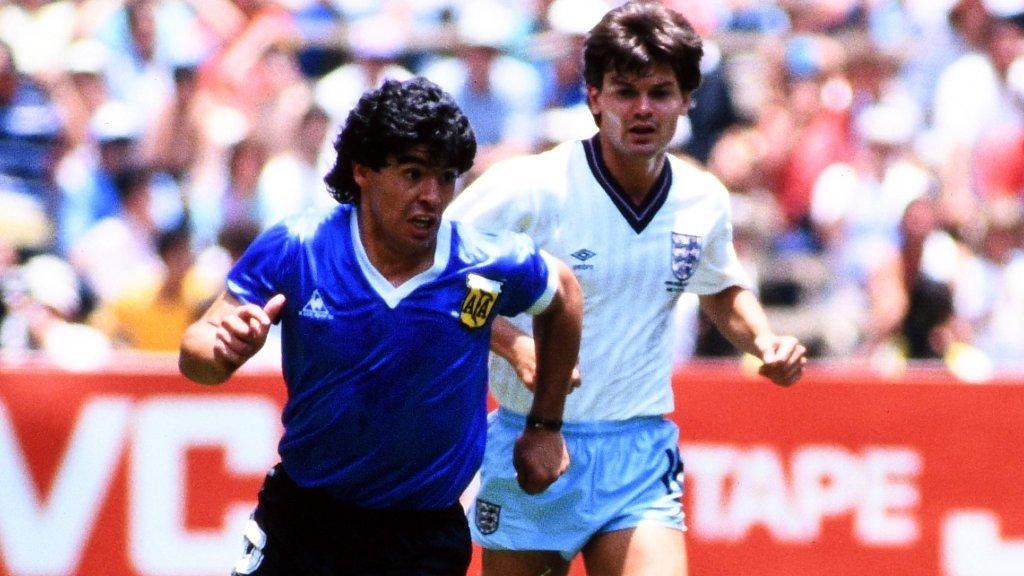Bobby Moore's World Cup shirt: Finders 'saddened by family distress'
- Published
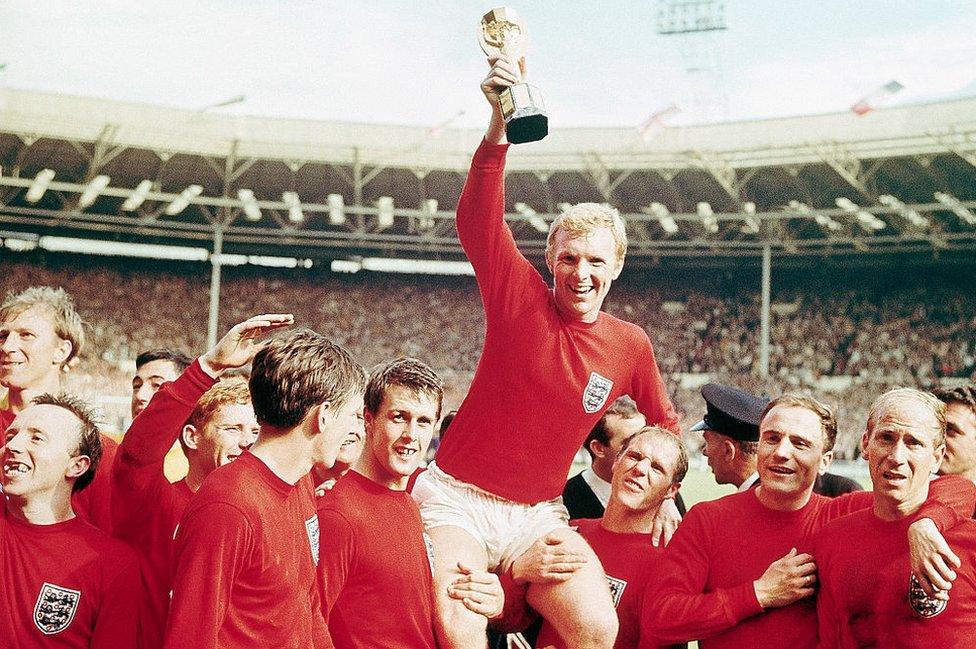
Bobby Moore holding the World Cup trophy aloft at Wembley in July 1966 is one of the most famous images in British sport
Authors who tracked down Bobby Moore's 1966 World Cup final shirt say they are "saddened" the discovery has caused the England captain's family distress.
His ex-wife Tina and daughter Roberta say the jersey went missing around 30 years ago after being stored in the attic of the family home in Essex.
They have called for it to be returned to them.
The team which identified the famous scarlet shirt say significant evidence suggests it was given away.
Last week, Tina Moore told the Daily Mail, external she was informed by the Football Association in 2021 that the shirt had been found during research for Three Lions on a Shirt: The Official History of the England Football Jersey, having been bought at an auction.
Neither the buyer's identity nor the date of the sale were revealed to her, she added.
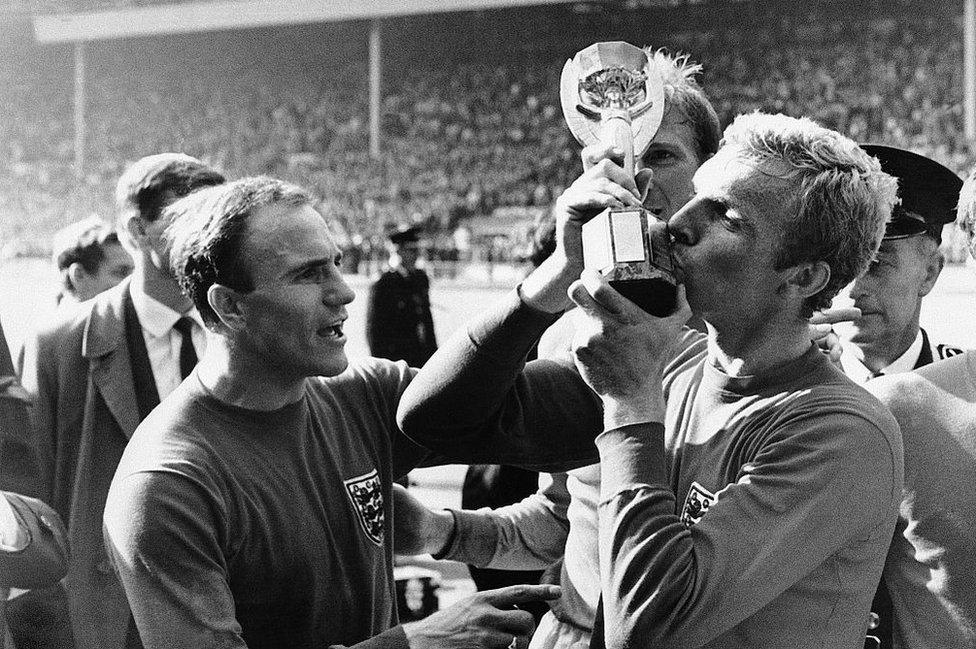
Moore remains the only England captain to lift the World Cup
Three Lions co-author Daren Burney said the inclusion of Moore's World Cup final shirt in the book was withdrawn when it "became clear it was potentially going to result in a dispute with the [Moore] family".
He said: "Whilst the owner of the shirt was in no doubt of the legality of their ownership, they did not want the stress and publicity that would have resulted.
"Having only been authenticated during the course of researching the book, the shirt was photographed [for the book] more than two years ago under an agreement of anonymity for its owner.
"We have subsequently been informed by lawyers it is no longer under the same ownership and we can categorically state that we have no idea where the shirt is now or who owns it."
Pele's shirt 'gifted'
Ms Moore claimed the No.6 shirt had been kept in a bag alongside the Brazil jersey Pele swapped with her then husband during the 1970 World Cup.
But the book's authors point to a Christie's auction listing from 2007, which stated Pele's shirt was gifted by Moore to the manager of a Plymouth sports shop in the 1970s.
Further doubt has arisen after Mail journalist Jeff Powell - a family friend of the Moores - described being shown the World Cup final jersey one evening and referred to the collar label which said it should be washed in Lux Soap Flakes.
That detail, Mr Burney says, "reveals that this cannot have been from the 1966 final" as that label was only present on shirts manufactured by Bukta, which England wore up to 1965 before swapping kit suppliers.
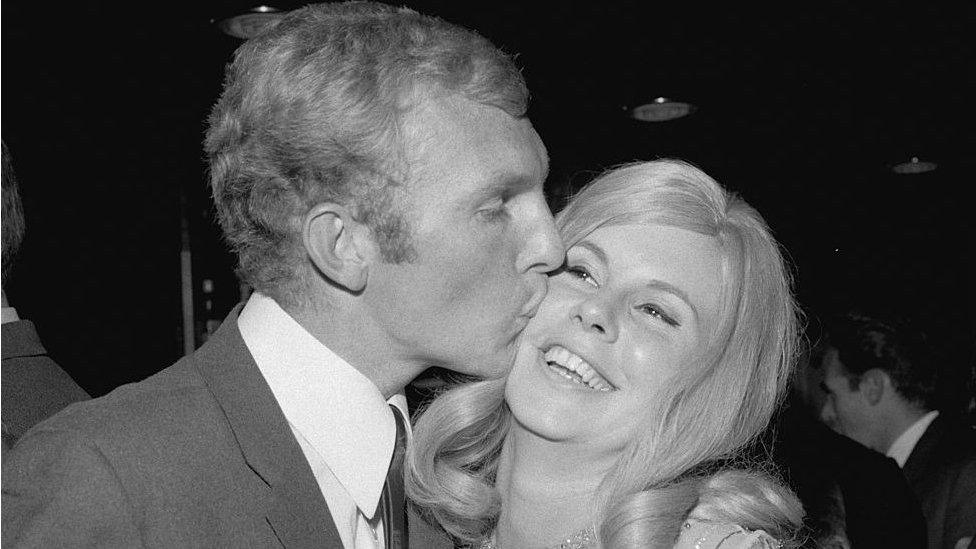
Bobby and Tina married in 1962 before divorcing in 1986
Mr Burney added it was "not a surprise to experts in the shirt-collecting world that at some point the shirt has left the possession of the Moore family" as all but Jack Charlton's shirt have either been lost or sold.
"Three Lions on a Shirt contains more than 150 historic match-worn England shirts. None of these are owned by the players who wore them in matches or their families. Up until relatively recently there was no great value placed on such shirts.
"In a gesture now considered barely believable, the great Tom Finney gave 11 of his England shirts to a local football team. Another historic shirt from 1911 was rescued from a jumble sale."
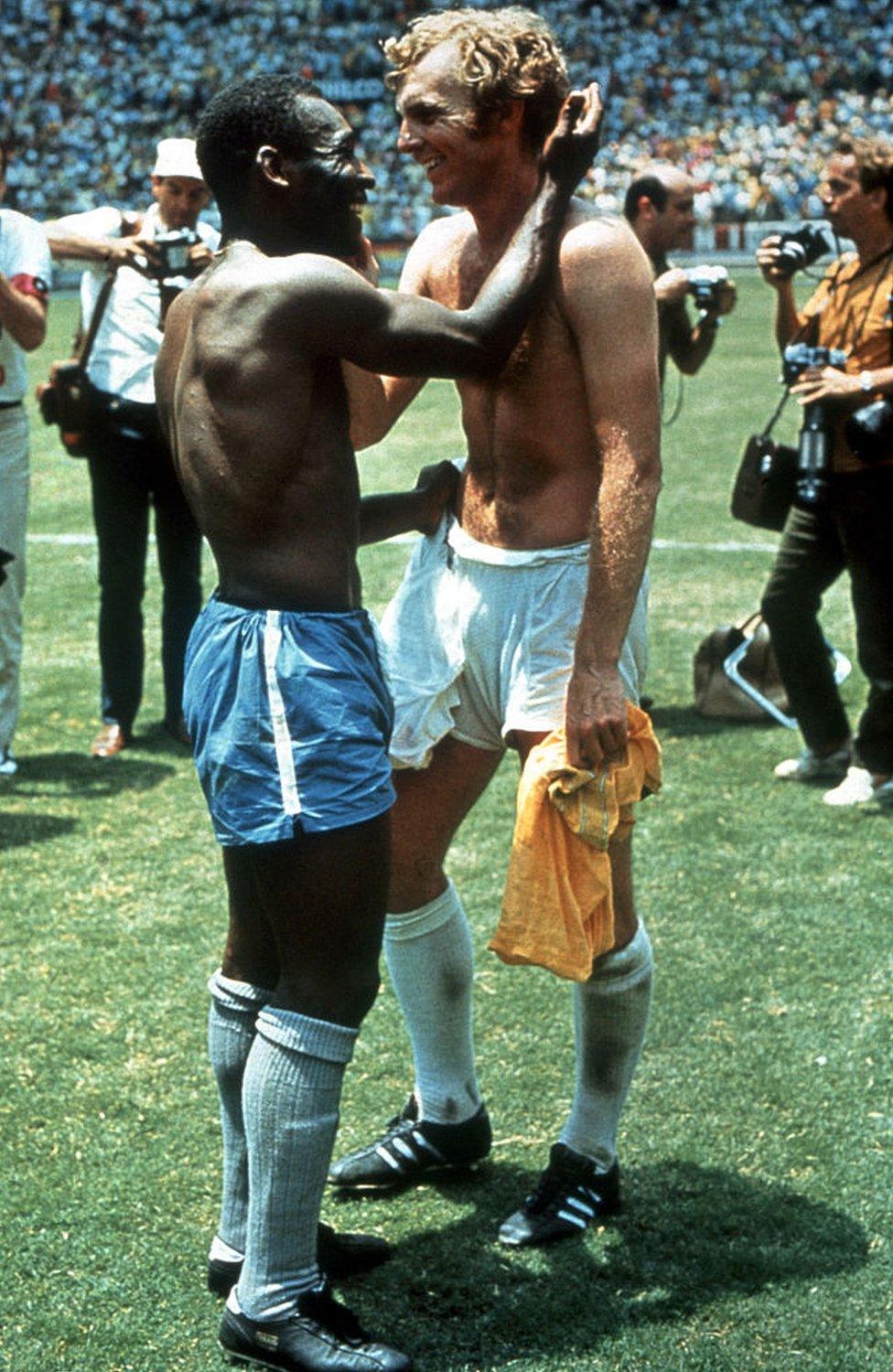
Pele and Moore swapped shirts following Brazil and England's clash in the Mexico World Cup in 1970
Traditionally, medals were considered the most precious item of football memorabilia, Mr Burney said.
Moore's World Cup medal was included in the sale of his career haul by Tina Moore to Bobby's former club West Ham in 2000.
However, shirt values have risen dramatically in recent years with Diego Maradona's so-called "Hand of God" shirt from Argentina's 1986 World Cup quarter-final against England being auctioned for £7m last May.
"The rocketing value of historic football shirts has been well-publicised and it is completely understandable that players or their families might feel they have a claim on shirts they once wore," Mr Burney added.
"However, the collectors of these items - many of whom started their collections many years ago - would argue their passion has served to preserve historic items that might otherwise have been forgotten and potentially lost."
Related topics
- Published23 April 2023
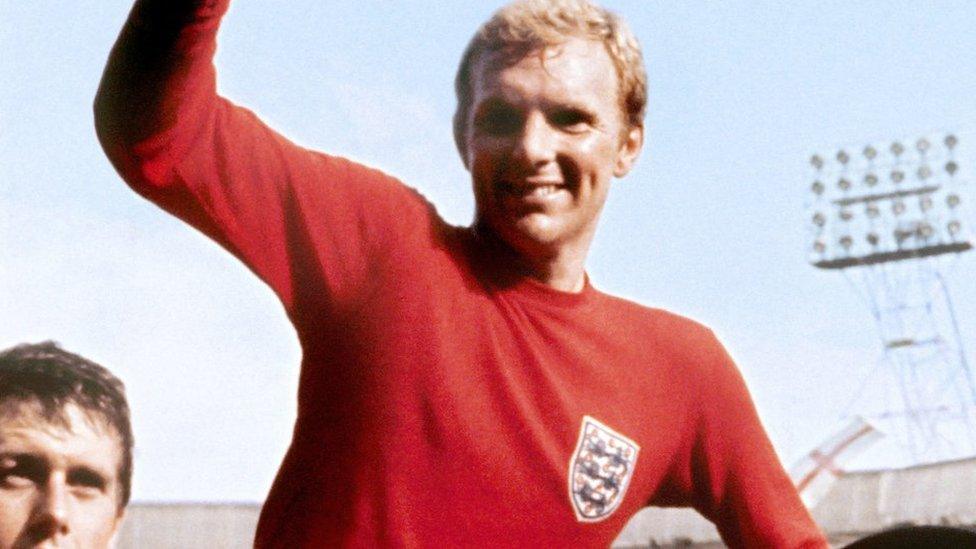
- Published17 December 2022
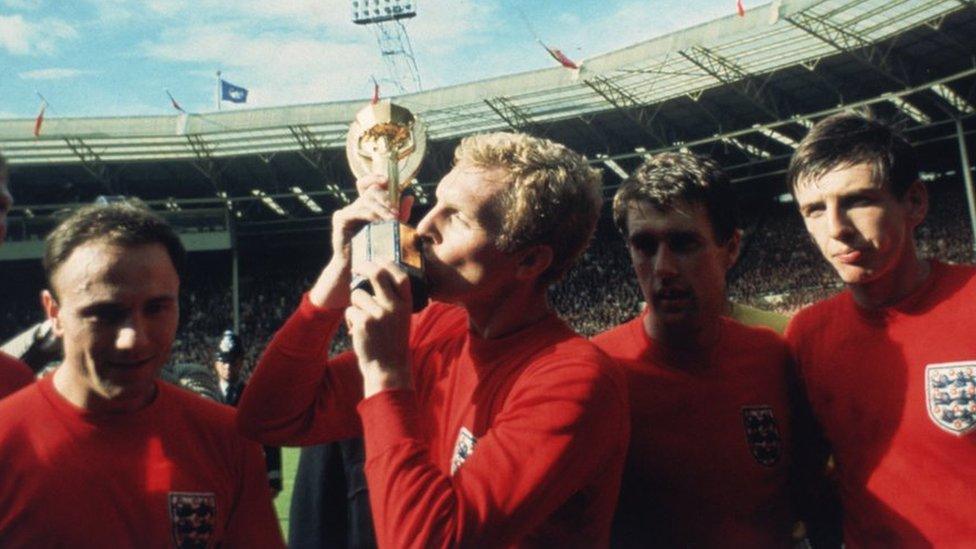
- Attribution
- Published4 May 2022
